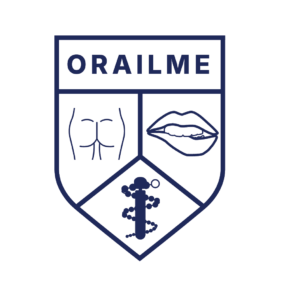The American Psychological association says that a hate crime is not only an “attack on one’s physical self, but an attack on one’s personal identity.” Since 1929, the Uniform Crime Reporting Program has been a primary source of crime statistics for the use of law enforcement. Following the 1990 Hate Crimes Statistics Act, a program was implemented that began compiling statistics on crimes determined to have been driven by biases against gender, race, religion, ethnicity, sexual orientation and later against disability. The most recent report, published in 2004, offers some very alarming statistics.In 2002, fewer hate crimes were reported than in 2001, thus the number of hate crimes probably decreased. Educational institutions are the third most likely place for a hate crime to occur. Additionally, statistical analysis by Nicholas Sakuri of the United States Student Association showed that of the hate crimes reported on college campuses, 37 percent were based on sexual orientation, higher than any other prejudice and significantly higher than the 16 percent this bias represents in the total number of hate crimes reported to the FBI. The number of hate crimes based on sexual orientation actually increased on the campuses of colleges and universities from 2001 to 2002, even though the total number of hate crimes decreased.The overwhelming majority of colleges and universities are not reporting thier hate crime statistics to the FBI. UR and the Eastman School of Music, are in the majority. Under the Clery Act, colleges and universities are required to report their crime statistics to the Department of Education. Reporting to the FBI is optional, but it is from the FBI and not the DOE that the UCR derives its national hate crime statistics. According to director of UR Security Walter Mauldin, because UR is not a public agency, it does not have the agency status necessary to make a report with the FBI. The UCR numbers of the university and its various campuses show up in the city of Rochester’s statistics.In 2002, UR reported that there were zero hate crimes to the Department of Education. That same year, however, saw a number of incidents of vandalism that seemed to be motivated by anti-homosexual bias and anti-Semitic bias. The numbers reported to the DOE do not reflect these crimes. Mauldin says that the Federal Query Act only requires the reporting of Part I offenses, which are those that cause bodily injury and include murder and non-negligent manslaughter, forcible rape, aggravated assault, simple assault and intimidation. The discrepancy here represents a problem that is seen in much of hate crime reporting. The FBI not only collects data on these Part I offenses, but also crimes that are considered to be against property. These crimes, which include burglary, larceny-theft, motor vehicle theft and destruction/damage/vandalism, actually account for 31 percent of all hate crimes presented in the UCR’s report. Furthermore, 82.2 percent of those afflicted by crimes against property were victims of destruction/damage/vandalism. The aforementioned vandalism incidents UR and Eastman were not included in any of the university’s published crime reports. In addition, they were not included in the city of Rochester’s numbers for the year 2002. This is obvious because Rochester reported no hate crimes that were motivated by anti-religious bias or anti-homosexual bias. Without accurate statistics on hate crimes, diversity groups may think that they are doing their jobs to make college campuses across the country safe for all when there is still much more work to be done. Further, this inaccuracy may cause a university to seem more or less tolerant than it really is. Like UR, Cornell University considered a private institution under the broad Department of Education criteria, reported no hate crimes to the DOE, but reported five crimes to the FBI. Is Cornell really a less tolerant campus than UR or is Cornell a more veracious campus for choosing to report crimes that are not Part I offenses? In any event, Mauldin concedes that there is work to be done on the UR and Eastman campuses. Mauldin says that the university is an extremely tolerant campus. Though there have been no Part I hate crime offenses in the last three reports issued by the University, the incidents of vandalism, however isolated, prove that more educational programs concerning diversity are needed.Haynes can be reached at ahaynes@campustimes.org.
centennial
Hate crime statistics do not add up
Edward G. Miner Library, located on the first floor of URMC, serves as the medical center’s main academic health sciences library, with patrons including patients, staff, students, and faculty. Established in 1925 as part of URMC, Miner Library was built originally in the middle of the medical center to symbolize unity, bringing together the clinical […]
ADP
Hate crime statistics do not add up
After losing their personal chefs and having their commercial-grade kitchens closed for two months, Fraternity Quad residents’ kitchens were reopened near the end of October. Read More


